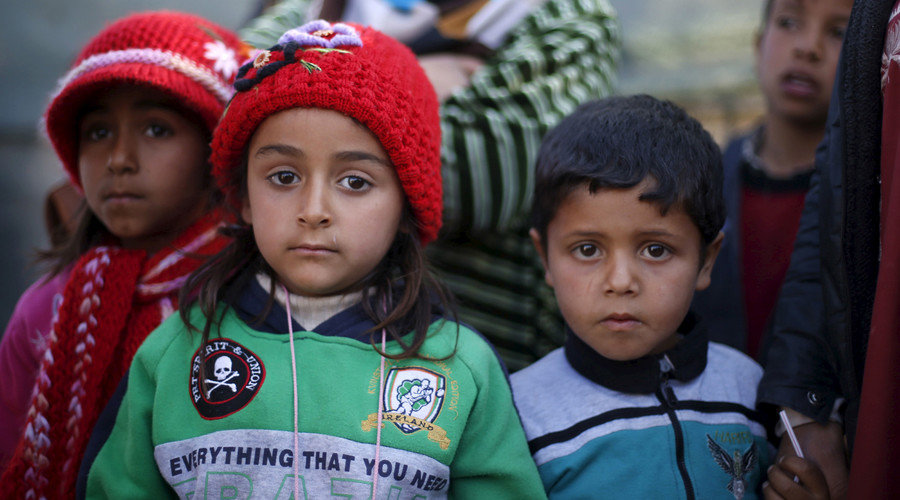Ud af de 28 største største mærker der blev spurgt af the Business and Human Rights Resource Centre (BHRCC) omkring deres arejdesbetingelser ved deres leverandør fabrikker i Tyrkiet og den potentielle udnyttelse af udokumenterede syriske børn og voksne, tilstod kun H&M og Next til at have fundet børn som arbejdere i deres fabrikker.
Indrømmelsen har udløst bekymring om at problemet nok er langt større og at mange af firmaerne holder udnyttelsen skjult.
Både H&M og Next sagde at de efter at have identificeret børnene greb til handling for at sende dem tilbage til skolen og støtte deres familier.
New report: Company action to address exploitation of Syrian refugees in Turkish garment factories: https://t.co/xlqKrlrPOT— BusinessHumanRights (@BHRRC) February 1, 2016BHRCC priste de to firmaer for "tage handling i at beskytte flygtningebørnene der blev fundet i deres fabrikker."
Den etiske vargthund estimerer at mellem 250,000 og 400,000 syriske flygtninge arbejder illegalt i Tyrkiet - den tredje største leverandør af tøj til Europa efter Kina og Bangladesh.
Kommentar: Resten af artiklen Syrian refugee children found working in Turkish factories er ikke videre oversat til dansk.
Other companies, including Primark and C&A, said they had identified undocumented adult Syrians in the factories, while M&S, Asos, Denhams and Superdry did not answer the question at all.
"Only a few brands appear to have engaged with the extent and the complexity of these issues in their Turkish supply base; even fewer report taking action to protect these vulnerable workers," the BHRRC said.
Turkey has taken in the largest number of Syrian refugees in the world, accepting some 2.5 million people who have fled the country in the wake of the five-year civil conflict. Just this month, Ankara finally announced it would be giving refugees the right to work as part of an effort to curb the number of refugees entering Europe.
Comment: Turkey has shown little regard for the welfare of refugees, while using the situation for its own interests.
Meanwhile, the UK continues to face criticism for its stringent refugee policy. More than 120 leading economists have penned a letter urging Prime Minister David Cameron to take in a "fair and proportionate share of refugees, both those already within the EU and those still outside it."
Last fall, Cameron pledged to resettle 20,000 refugees in the next five years, a figure lambasted by critics as being far too low compared with the amount of refugees taken in by other European countries. Germany accepted 1.1 million refugees last year, while Sweden has taken in 160,000.
The letter follows open appeals by 350 of the UK's top lawyers and 27 NGOs and charities, including Amnesty International and Oxfam, for the British government to do more to support refugees.
The economists argue the UK has in recent history taken in far larger numbers of refugees, at a greater rate, and yet managed it successfully. In 1972 the UK welcomed thousands of Ugandan and Asian refugees who went on to make an "extraordinary contribution" to the country, they said.
"Refugees should be taken in because they are morally and legally entitled to international protection, not because of the economic advantages they may bring. Nonetheless, it is important to note that the economic contribution of refugees and their descendants to the UK has been high," the economists wrote.
Last month, a report by the International Monetary Fund (IMF) found the refugee influx could deliver long term economic benefits to the EU if the refugees are properly integrated into the job market.




Kommentar: Exploiting a crisis to take advantage of defenseless, vulnerable children who have already experienced more horror than any child should endure is beyond reprehensible.
10,000 refugee children missing in the EU - Europol chief of staff